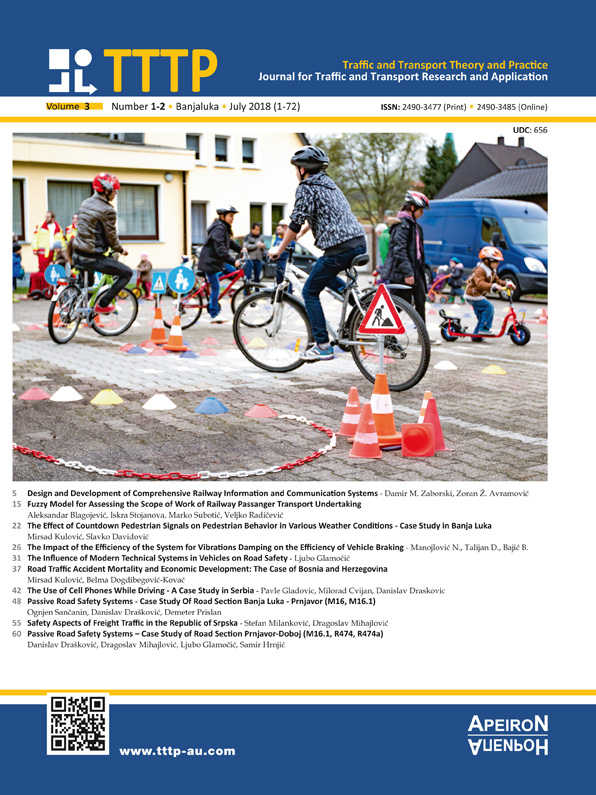Fuzzy Model for Assessing the Scope of Work of Railway Passanger Transport Undertaking
DOI:
https://doi.org/10.7251/JTTTP1801015BAbstract
The main objective of the European policy of rail transport is the development of a single railway area. The opening of the railway sector to market competition impose that railway undertakings behave like any other modern enterprises in other markets and in other industries. It means, they must constantly develop and maintain competitive advantages, and be better than others. In today’s very intense competition conditions, this is the most difficult to achieve. The railway undertakings are challenged to find optimal solutions to operate efficiently and effectively, in order not only to survive on the transport market, but also to develop and maintain a competitive advantage. The paper developed innovative model for the evaluation of efficiency of railway operators for passenger transport assessing the scope of work of railway undertakings that can greatly help to increase the competitive ability of railway undertakings in the single railway market. The developed models allow the integration of indicator groups (resources, operational, financial, quality and safety indicators) into a single assessment of the scope of work of railway undertakings and also allow the provision of information about the corrective actions that can improve the scope of work of the railway undertaking. The proposed model has been tested on actual examples, e.g. railway undertaking Railways of Republic of Srpska. The analysis of the results shows exceptional suitability for use of developed approach for assessing the scope of work of railway undertakings.Downloads
Published
2018-09-05
Issue
Section
Чланци
